A New Era of Climate Intelligence: Launching dClimate Labs and EarthOS | Data ReFined #57
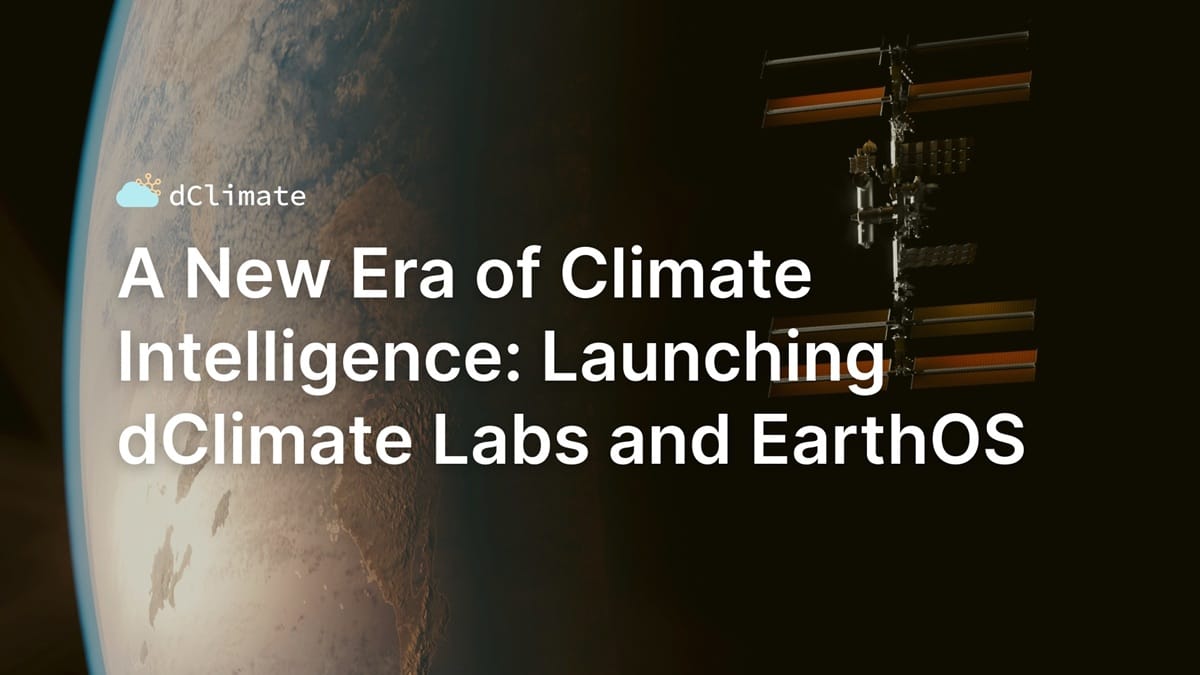
⛅ Data ReFined is dClimate's newsletter, delivering insights at the intersection of climate risk management, the voluntary carbon market (VCM), and climate intelligence.
Introducing dClimate Labs and EarthOS
Ahead of this edition’s news highlights, we’re excited to introduce dClimate Labs to address a critical gap in the climate tech stack: the lack of integrated, actionable infrastructure. Our mission is to build the systems needed to price, manage, and respond to climate risk in real time—starting with EarthOS, the world’s first commercial AI-powered digital twin of Earth.
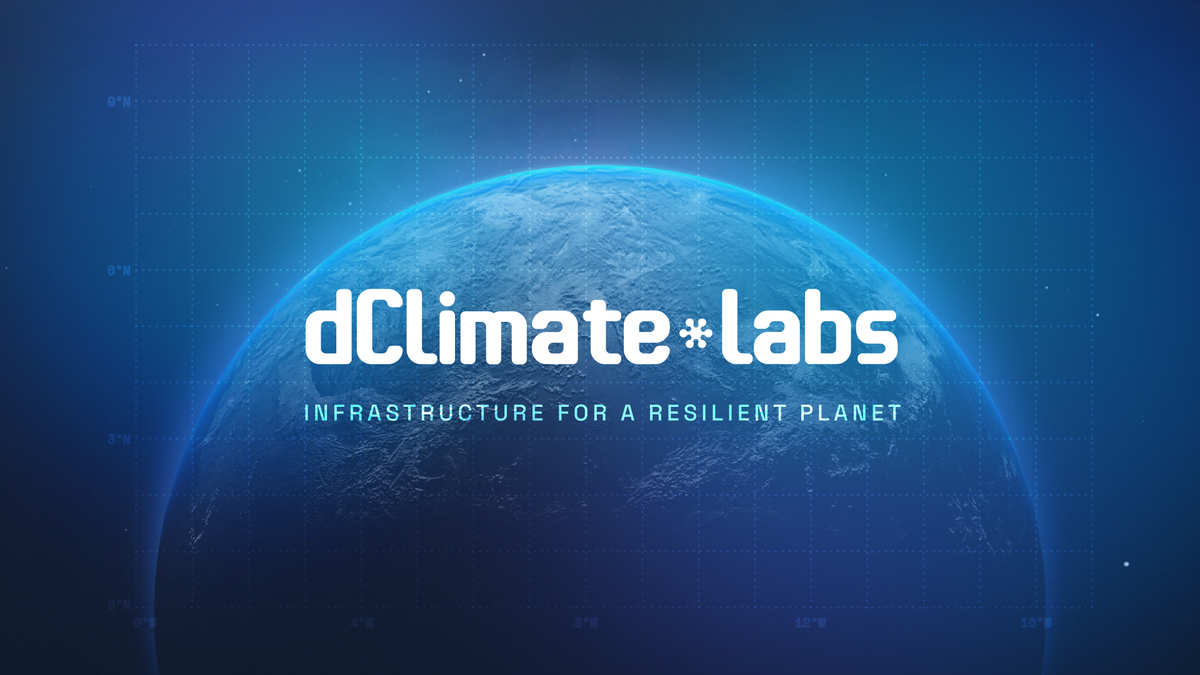
The dClimate team will be at London Climate Week (June 21-29) and presenting at the Living Planet Symposium (June 23-27) in Vienna, Austria. If you’re attending one of these events and like to meet, please reach out here.
This issue explores how financial innovation is helping agriculture prepare for climate extremes, with a spotlight on cat bonds and parametric insurance.
Climate Risk Management
🛡️ Cat Bonds Recommended by EU Study to Protect Farmers from Climate Risks
🛡️ Why Parametric Rainfall Insurance for Agriculture Matters
🛡️ The Cat Bond Market Continues its Strong Growth in 2025
🛡️ How to Close the Gaps in Storm Damage Data
Carbon Finance & Digital MRV
🌳 Report: 2025 State of the Voluntary Carbon Market
🌳 DRC's Plan for the World's Largest Tropical Forest Reserve
🌳 Verra and Hedera to Integrate Blockchain-Based Tools into Carbon Markets
Climate Data & Intelligence
🌎 New Public Tool for High-Precision Vegetation Monitoring
🌎 WRI Data Shows What’s Driving Forest Loss Around the World
🌎 Report: European State of the Climate 2024
Scroll down for more details! 👇
Subscribe here and join over 4500+ readers!

Cat Bonds Recommended by EU Study to Protect Farmers from Climate Risks
A new report by the European Investment Bank (EIB) and the European Commission finds that European agriculture incurs over €28 billion in losses annually due to extreme weather, with these losses projected to rise to €40 billion by 2050. The study recommends catastrophe bonds and public-private reinsurance as scalable tools to safeguard farmers and mobilize private capital.
Why this matters: Better risk financing via cat bonds can stabilize farm income and support financial resilience for agricultural businesses.
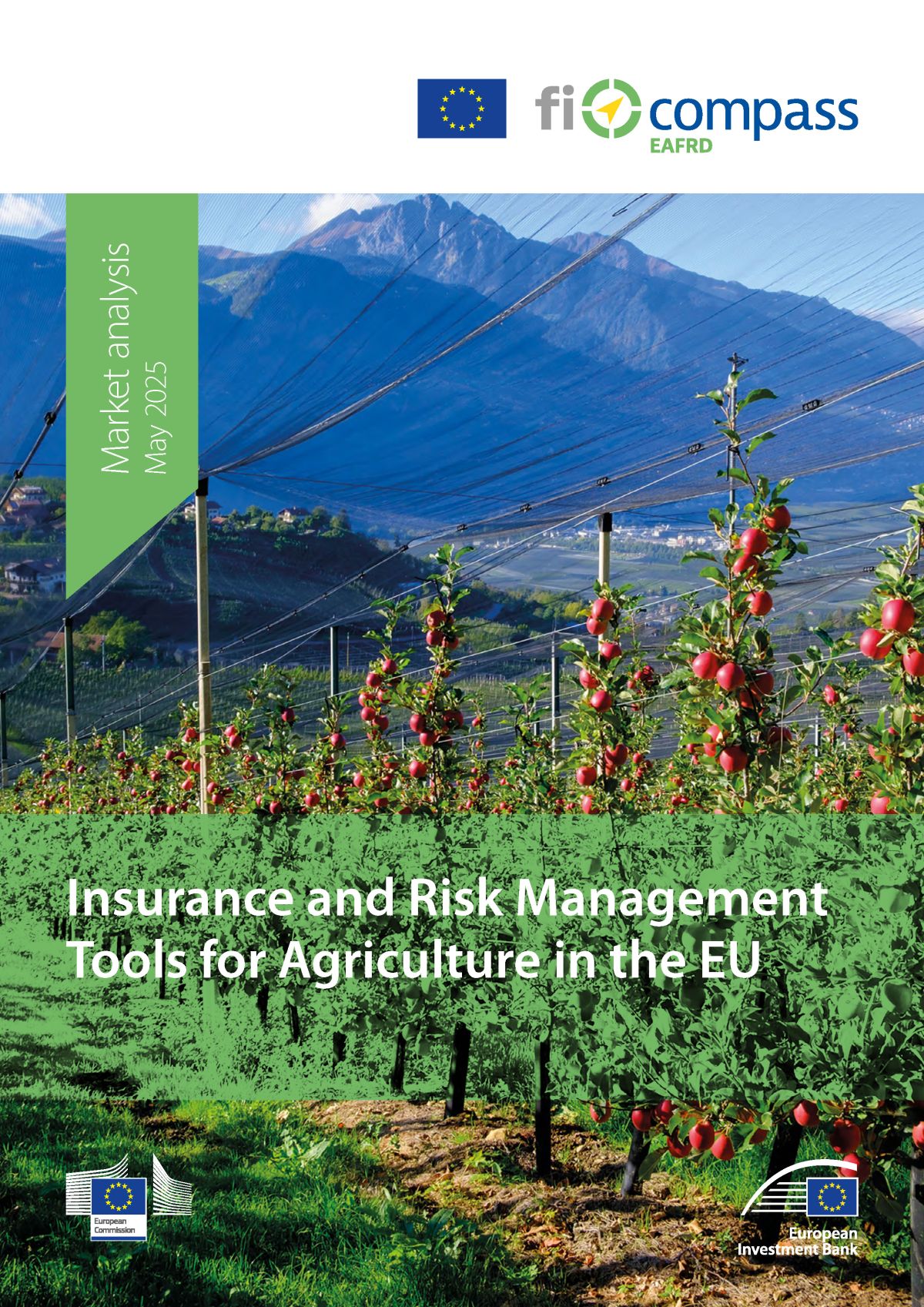
Why Parametric Rainfall Insurance for Agriculture Matters
U.S. agriculture suffered nearly $22 billion in drought losses in 2022 and an additional $4 billion from flooding in 2023, yet traditional crop insurance still overlooks these rainfall extremes. A recent article from Arbol highlights how parametric rainfall insurance can bridge the gap with fast, data-driven payouts tailored to real-time conditions.
The Cat Bond Market Continues its Strong Growth in 2025
According to data from Artemis, catastrophe bond issuance is expected to reach $16.9 billion by the end of June, nearly matching the annual total for 2024 in just half a year. The expanding cat bond market underscores the growing appetite among institutional investors to price and manage climate risk.
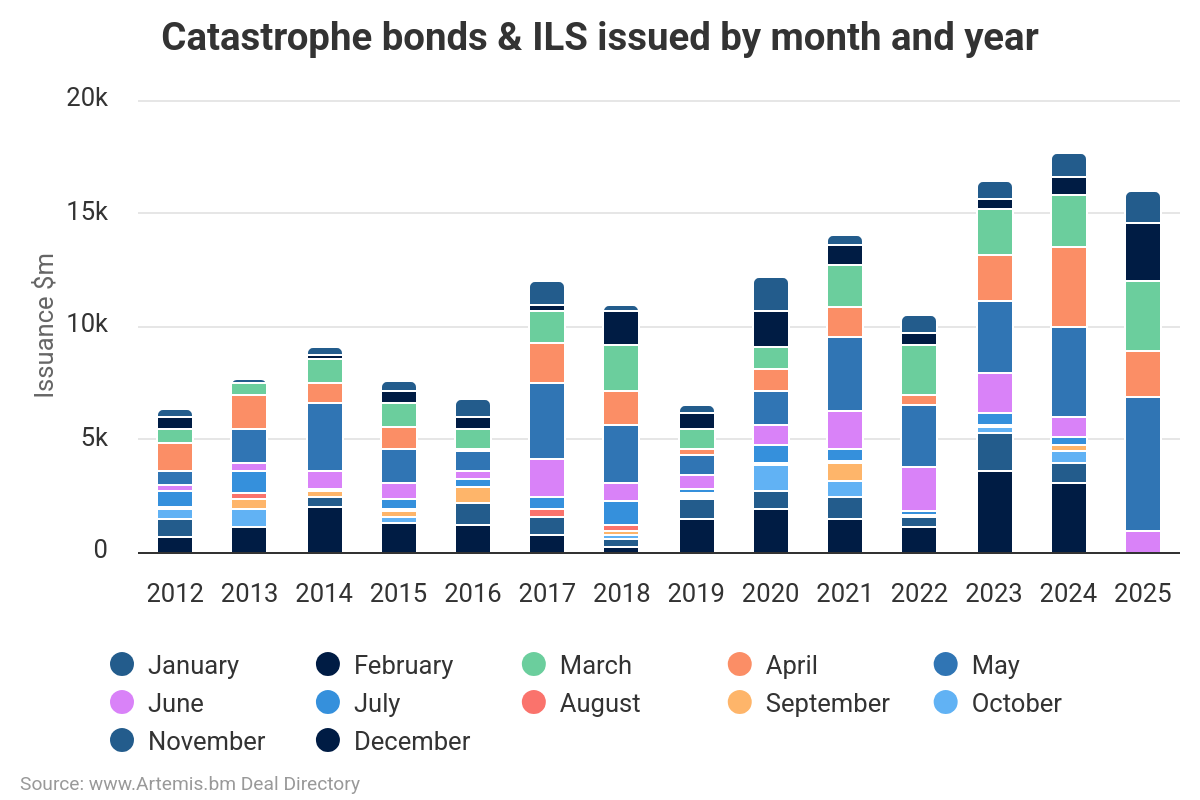
How to Close the Gaps in Storm Damage Data
Much of storm damage reporting relies on rough estimates, rather than verifiable assessments. Without uniform standards, public databases are riddled with gaps, duplicates, and unverifiable losses. In this article, atmospheric scientists at Texas A&M University propose four steps to improve climate disaster data.


Report: 2025 State of the Voluntary Carbon Market
Ecosystem Marketplace's annual report on the VCM charts a critical transition underway in the voluntary carbon market: a slowdown in volume but a rising premium on quality. As older methodologies phase out, market actors are doubling down on integrity, removals, and interoperability with compliance markets.
Why this matters: Understanding this shift helps buyers and developers position themselves for the next phase of a maturing carbon market.
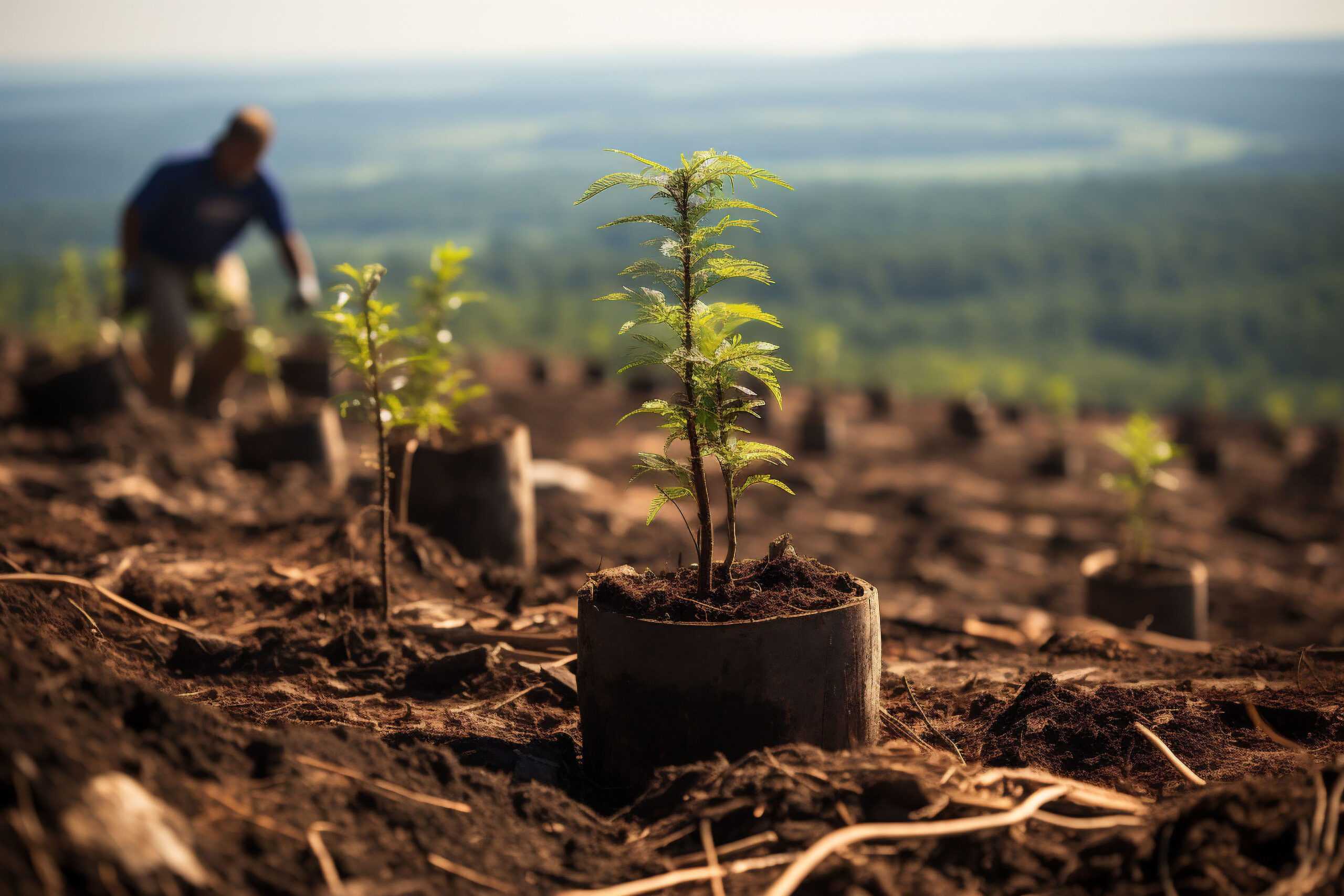
DRC's Plan for the World's Largest Tropical Forest Reserve
The Democratic Republic of Congo (DRC) is set to establish the world’s largest protected tropical forest reserve, a green corridor spanning over 540,000 km². This initiative safeguards a significant portion of the Congo Basin’s carbon sink capacity, which sequesters about 1.5 billion tons of CO₂ annually.
Verra and Hedera to Integrate Blockchain-Based Tools into Carbon Markets
Verra is the first carbon standards body to embed blockchain-driven tools (Hedera Guardian) directly into its project lifecycle, from methodology application to credit issuance. The partnership aims to improve the transparency and integrity of methodologies and monitoring systems in the carbon markets.

New Public Tool for High-Precision Vegetation Monitoring
The University of Kansas has launched a free web application that utilizes Sentinel-2 satellite imagery and PRISM climate data to monitor crop and vegetation health across the United States. With 10 m resolution and daily updates, farmers, researchers, and insurers can now identify anomalies, drought impacts, and post-disaster recovery in near real-time.
Why this matters: Accessible crop monitoring empowers climate-sensitive decisions around agriculture resilience and risk management.
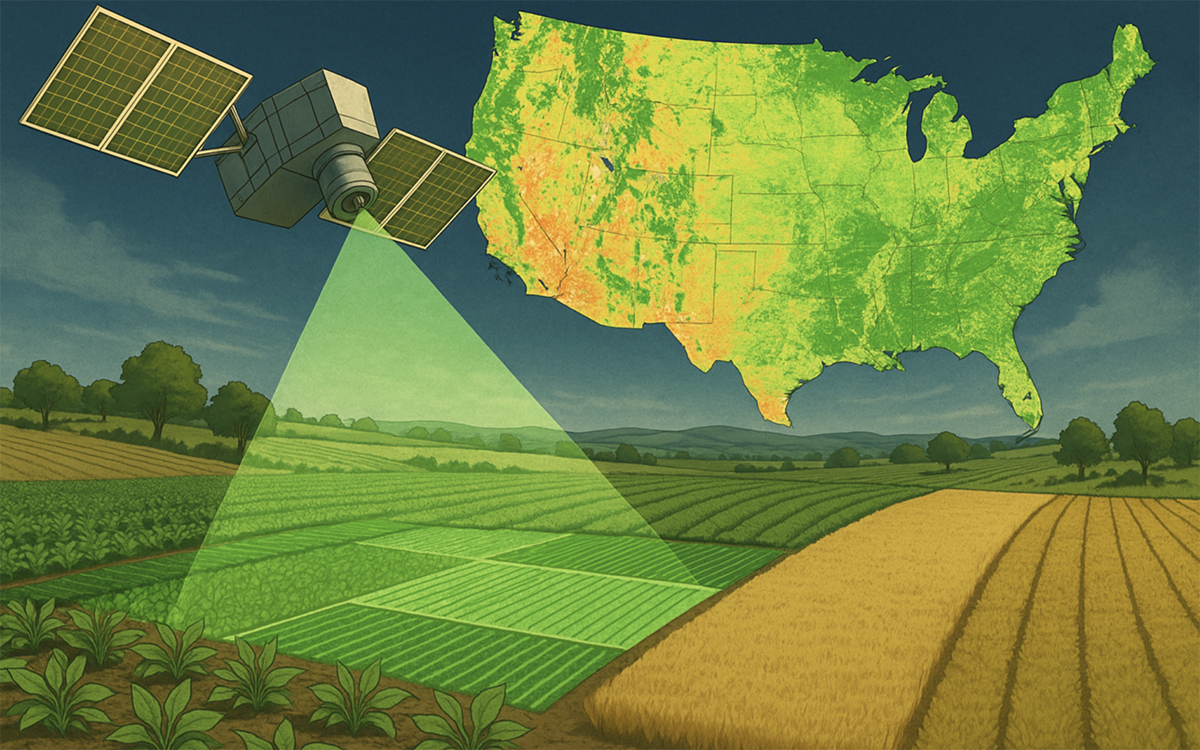
WRI Data Shows What’s Driving Forest Loss Around the World
WRI’s updated forest-loss dataset integrates deep‑learning and satellite imagery, delivering higher‑resolution insights into drivers like logging, agriculture, and wildfire.
Report: European State of the Climate 2024
Copernicus reports that in 2024, southeastern Europe endured its longest heatwave, significant glacier melting, and large-scale forest fires, while western Europe saw record-breaking precipitation and flooding. These climate extremes underscore the urgent need for targeted adaptation strategies across varying geographies.

Thank You For Reading Our Newsletter! 💙
We greatly appreciate your interest and support! If you enjoyed this newsletter, please consider forwarding it to your network to increase awareness of these critical climate topics.
About dClimate
dClimate’s decentralized and open climate data infrastructure powers a wide range of solutions, including climate risk assessments, parametric insurance, and climate intelligence platforms for carbon and commodity markets.
⛅ Visit our website | 📊 Discover our climate tech solutions
Join the Mission
We welcome your comments, feedback, and likes. Follow us on the channels below to stay updated and start exploring our open climate data ecosystem. 👇





